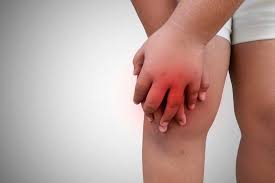
Juvenile Arthritis Awareness Month: Recognizing Early Signs and Effective Management
In recognition of Juvenile Arthritis Awareness Month, Dr. Deepak Ugra, a pediatrician at Lilavati Hospital in Mumbai, emphasizes the need to identify and address juvenile arthritis (JA), a chronic autoimmune disease that leads to significant joint inflammation and stiffness in children and adolescents.
Dr. Ugra notes that JA, which commonly affects children under the age of 16, can have a profound impact on daily activities. Children with this condition may experience chronic joint pain, stiffness, particularly in the morning, and swelling. They might also face weight loss, fever, rash, fatigue, and swollen lymph nodes. Additionally, their mobility may be reduced, making it difficult for them to walk, grip objects, or participate in physical activities.
While the exact cause of juvenile arthritis is not fully understood, factors such as genetics, family history, and environmental influences may play a role. Early detection is critical for effective management and relief from symptoms.
The treatment approach for juvenile arthritis usually involves a combination of medication, physical therapy, and lifestyle modifications. Nonsteroidal anti-inflammatory drugs (NSAIDs) are frequently used to control pain and inflammation. Depending on the child's specific needs, treatment may also include steroids and disease-modifying anti-rheumatic drugs. Physical therapy, which involves light exercises for 15-20 minutes daily, can help enhance mobility and prevent further joint damage. Dr. Ugra also highlights the importance of a healthy diet, advising parents to provide their children with fresh fruits, vegetables, and whole grains while avoiding processed and junk foods. Staying hydrated is also crucial.
Dr. Ugra encourages parents to be vigilant and consult healthcare professionals for regular check-ups and follow-ups to ensure their child's well-being. Additionally, addressing potential stress and depression through activities like yoga or meditation can be beneficial for children with juvenile arthritis.
By recognizing early signs and adhering to a comprehensive treatment plan, parents can effectively manage juvenile arthritis and improve their child’s quality of life.